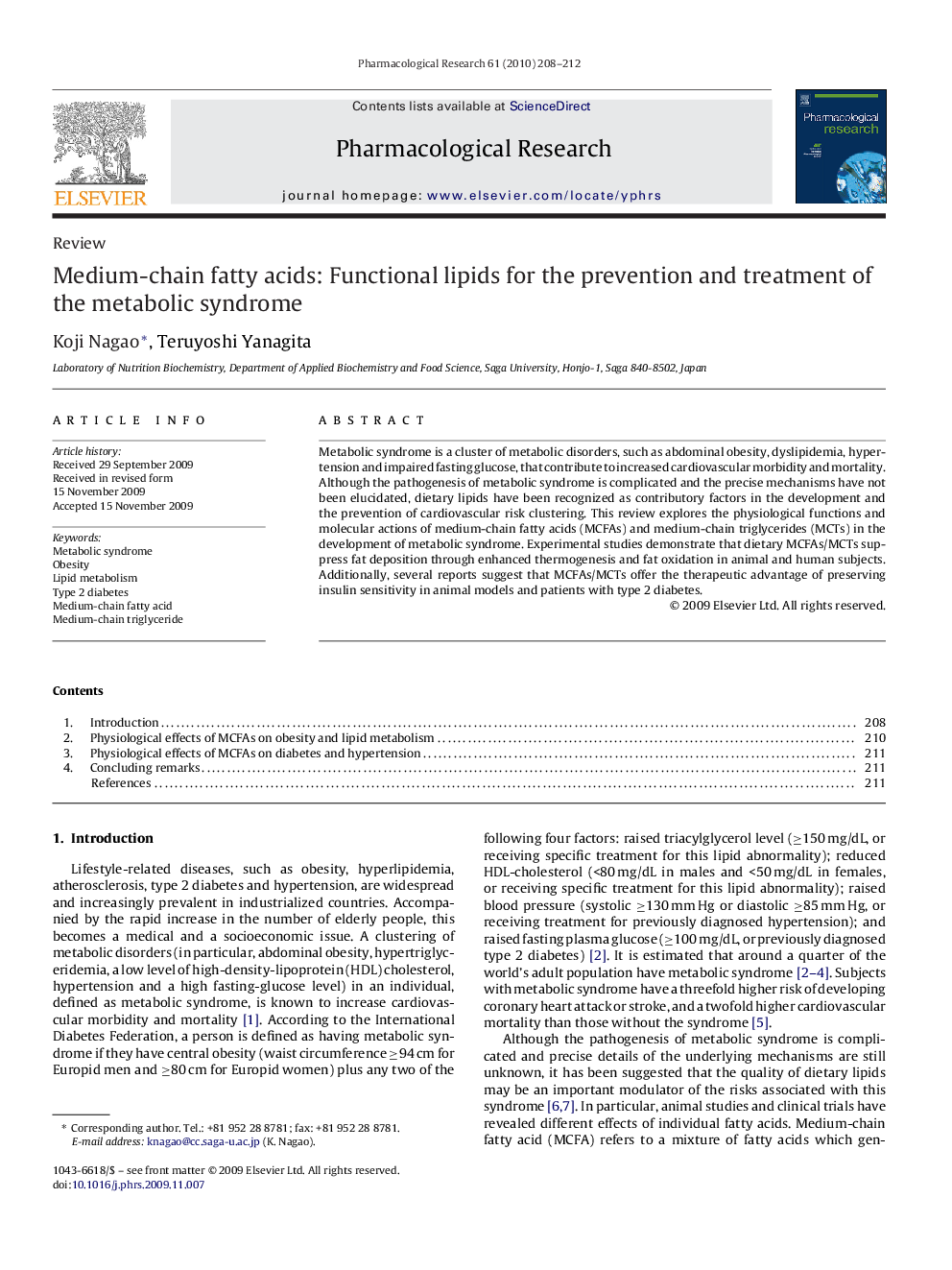| Article ID | Journal | Published Year | Pages | File Type |
|---|---|---|---|---|
| 2562501 | Pharmacological Research | 2010 | 5 Pages |
Metabolic syndrome is a cluster of metabolic disorders, such as abdominal obesity, dyslipidemia, hypertension and impaired fasting glucose, that contribute to increased cardiovascular morbidity and mortality. Although the pathogenesis of metabolic syndrome is complicated and the precise mechanisms have not been elucidated, dietary lipids have been recognized as contributory factors in the development and the prevention of cardiovascular risk clustering. This review explores the physiological functions and molecular actions of medium-chain fatty acids (MCFAs) and medium-chain triglycerides (MCTs) in the development of metabolic syndrome. Experimental studies demonstrate that dietary MCFAs/MCTs suppress fat deposition through enhanced thermogenesis and fat oxidation in animal and human subjects. Additionally, several reports suggest that MCFAs/MCTs offer the therapeutic advantage of preserving insulin sensitivity in animal models and patients with type 2 diabetes.
